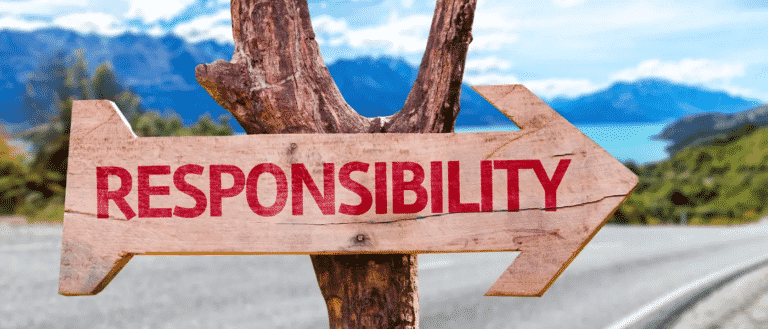Peering Into The Future Of The US Gambling Industry

The US gambling landscape has changed significantly in the last five years. If we rewind the clock ten years, the landscape is even more unrecognizable. And understand, the industry’s evolution is in its early stages and far from over.
Five years ago, the US online gambling landscape comprised online casinos in New Jersey and Delaware and online poker in New Jersey, Delaware, and Nevada. The best candidates to join them were Pennsylvania, California, and New York, and five years later, only one of those states (Pennsylvania) managed to pass an online gambling law. Further, there was only the faintest of hopes that New Jersey’s efforts to legalize sports betting would prevail in the courts.
Ten years ago, the US online poker community had just gone through Black Friday. There were zero legal online betting options in the US, and even the words daily fantasy sports were gobbledygook to everyone outside a tiny sliver of the gambling community. However, a September 2011 Department of Justice Office of Legal Counsel opinion offered a glimmer of hope and a small glimpse into what the future might hold.
That said, ten years ago, no one could have predicted the industry’s transformation. Some may have been bullish on legal sports betting and others bearish on online casino and poker, but to my knowledge, no one can look back and say, “I told you so,” on all counts.
That raises the question: What will the US gambling industry look like five or ten years from now?
Here’s my best guess.
Sports Betting Is Virtually Everywhere
This is already close to reality and will almost certainly be the case in the next five years.
During a presentation at G2E, Eilers & Krejcik Gaming predicted as many as 44 states would have legal sports betting by 2026, with 34 possessing some manner of online sports betting.
44 seems like a lofty number, but retail sports betting has proven an uncontroversial expansion of gambling, and outside of a few hardline holdouts, it will be available in most of the country.
The more interesting E&K number is the 34 online sports betting states, as online betting represents the overwhelming majority of sports wagers and is a much larger opportunity.
There are several reasons for online sports betting revenue to trail retail sportsbooks:
- The ubiquity of online gambling makes it a harder sell
- The challenges posed by IGRA to tribal efforts to expand into online gambling
- Some existing state laws make passing online betting expansions more difficult
Online Poker Makes Inroads
Online poker is currently legal in 7 states:
- Nevada Online Poker
- Delaware Online Poker
- New Jersey Online Poker
- Pennsylvania Online Poker
- Michigan Online Poker
- West Virginia Online Poker (legal but not launched)
- Connecticut Online Poker (legal but not launched)
The smart money is on the online poker scene being much the same in five years. However, there are reasons for optimism.
- The death of Sheldon Adelson was also the death of the anti-online gambling movement. Coupled with the New Hampshire Lottery’s victory in the Wire Act case, the stage is set for interstate online poker agreements, shared servers, and more, which allows smaller states to legalize online poker without worrying the industry will fail.
- The spread of sports betting helps make a case for poker, as both games tend to fall outside the traditional ideas of casino games.
- The rapid spread of all types of gambling could allow poker, a small potatoes issue compared to sports betting, online casinos, lottery, and brick-and-mortar casinos, to fly under the radar.
- In the same way, stakeholders might see the small potatoes aspect of online poker as a bargaining chip to deploy at the sports betting table.
- Two key states, California and New York have explored this topic ad nauseam and could quickly rekindle their efforts.
On the pessimistic side, online poker doesn’t offer the same financial opportunities as casino or sports betting, and passage to launch takes in the neighborhood of two years.
Still, looking at how many states have quietly expanded gambling, I can envision a scenario where the number of online poker states hit double digits in five years. Nor is it out of the question that half the country has access to legal online poker in the same time frame considering online poker has more headwinds in large population states. From the aforementioned California and New York, to Illinois, Indiana, and Massachusetts.
The Online Casino Era Is Just Beginning
Online poker might be in good shape in 2026, but the online casino industry will likely still be stuck in the mud.
The good news is, when it comes to expanded gambling, online casino sites are the last package of toilet paper on the shelf. And states struggling to balance their budgets will have to turn somewhere, and online casino games provide a soft-landing spot.
Additionally, where it’s legal, online casino apps have been noncontroversial, both in terms of legislative blowback and in social harm.
All that said, the big four states will be among the longest holdouts. Florida, Texas, California, and New York have structural hurdles that will make passage of online casino bills far more complicated than online poker.
Bottom line: It might take online gambling ten years to penetrate 50% of the US population, whereas online poker sites can accomplish the same in half the time.
Gambling Becomes a Culture War Issue
The elephant in the room for gambling is the potential pushback stemming from the rapid expansion and tremendous increase in advertising around gambling. That has the real possibility of turning gambling into a hot-button political issue.
On top of marketing fatigue, online gambling could suffer from any of the following issues:
- A match-fixing scandal (something industry types are already sounding an alarm bell over) could upend a lot of the progress that has been made by bringing about stiff regulation, particularly at the federal level.
- As the market is winnowed down to just a handful of success stories, some operators trying to make the cut could decide to take shortcuts that paint the entire industry in a negative light.
- Lousy customer service, bait-and-switch type promotions, over-the-top advertising, and predatory practices could lead to bad press and an unenthusiastic customer base.
- Lotteries, tribes, and commercial operators are likely to be at odds in certain states, with some groups settling on a scorched earth approach.







